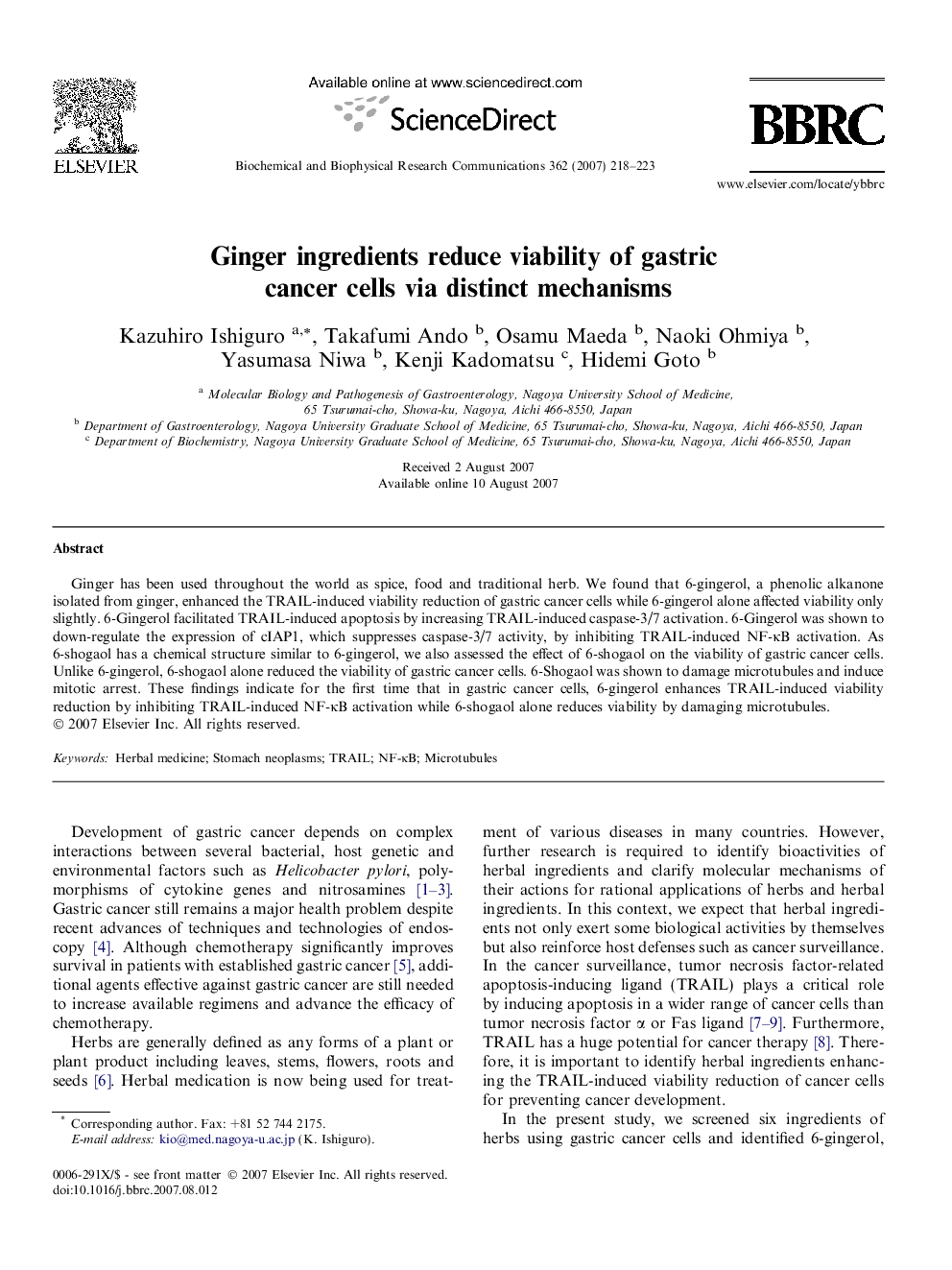| Article ID | Journal | Published Year | Pages | File Type |
|---|---|---|---|---|
| 1936499 | Biochemical and Biophysical Research Communications | 2007 | 6 Pages |
Ginger has been used throughout the world as spice, food and traditional herb. We found that 6-gingerol, a phenolic alkanone isolated from ginger, enhanced the TRAIL-induced viability reduction of gastric cancer cells while 6-gingerol alone affected viability only slightly. 6-Gingerol facilitated TRAIL-induced apoptosis by increasing TRAIL-induced caspase-3/7 activation. 6-Gingerol was shown to down-regulate the expression of cIAP1, which suppresses caspase-3/7 activity, by inhibiting TRAIL-induced NF-κB activation. As 6-shogaol has a chemical structure similar to 6-gingerol, we also assessed the effect of 6-shogaol on the viability of gastric cancer cells. Unlike 6-gingerol, 6-shogaol alone reduced the viability of gastric cancer cells. 6-Shogaol was shown to damage microtubules and induce mitotic arrest. These findings indicate for the first time that in gastric cancer cells, 6-gingerol enhances TRAIL-induced viability reduction by inhibiting TRAIL-induced NF-κB activation while 6-shogaol alone reduces viability by damaging microtubules.
